Discover Herbert Smith Freehills Kramer Podcasts
Herbert Smith Freehills Kramer Podcasts

Herbert Smith Freehills Kramer Podcasts
Author: Herbert Smith Freehills Kramer Podcasts
Subscribed: 131Played: 9,397Subscribe
Share
© All rights reserved
Description
A series of thought leading podcasts ranging on topics and sectors by Herbert Smith Freehills Kramer. For more information please visit www.hsfkramer.com
1165 Episodes
Reverse
In this episode of Insurance Bites, Greig Anderson, Partner, and Sarah Irons, Knowledge Counsel, from the Insurance & Professional Risks team, look at key developments impacting policyholders and the risks they face in the coming months. Topics explored include cyber risks and AI, evolving liability exposures (including changes to product liability legislation, PFAS and what is new in climate change related litigation), developments relevant to D&O cover, Government proposals on captives and SME terrorism cover.
Below you can find links to our blog posts on the developments and cases covered in this podcast:
• HSF Kramer AI Tracker – Tracking AI law and policy globally https://www.hsfkramer.com/insights/reports/ai-tracker
• UK government looks set to introduce ransomware payment ban and mandatory reporting https://www.hsfkramer.com/notes/cybersecurity/2025-posts/uk-government-looks-set-to-introduce-ransomware-payment-ban-and-mandatory-reporting
• Major changes to UK Cyber Legislation: Cyber Security and Resilience Bill published in UK Parliament https://www.hsfkramer.com/notes/cybersecurity/2025-posts/major-changes-to-uk-cyber-legislation-cyber-security-and-resilience-bill-published-in-uk-parliament
• UK Jurisdiction Taskforce consults on draft legal statement on liability for AI harms https://www.hsfkramer.com/notes/litigation/2026-01/uk-jurisdiction-taskforce-consults-on-draft-legal-statement-on-liability-for-ai-harms
• UK Insurance Regulation: looking ahead to 2026 https://www.hsfkramer.com/notes/insurance/2026-posts/uk-insurance-regulation-looking-ahead-to-2026
• Modernising the redress system: Fair and reasonable changes? https://www.hsfkramer.com/notes/fsrandcorpcrime/2025-posts/modernising-the-redress-system-fair-and-reasonable-changes
• Lliuya v. RWE – Landmark German ruling recognising potential liability in principle of a local emitter for climate change harms in a foreign jurisdiction https://www.hsfkramer.com/notes/esg/2025-posts/lliuya-v-rwe-landmark-german-ruling-recognising-potential-liability-in-principle-of-a-local-emitter-for-climate-change-harms-in-a-foreign-jurisdiction
• Milieudefensie Takes Legal Action Against ING Over Climate Impact https://www.hsfkramer.com/notes/esg/2025-posts/milieudefensie-takes-legal-action-against-ing-over-climate-impact
• High Court allows case to proceed against defendant companies domiciled in England despite claims having more real and substantial connection with Brazil https://www.hsfkramer.com/notes/litigation/2025-03/high-court-allows-case-to-proceed-against-defendant-companies-domiciled-in-england-despite-claims-having-more-real-and-substantial-connection-with-brazil
• Preliminary update in case regarding Shell responsibility for legacy oil pollution in Nigeria https://www.hsfkramer.com/notes/esg/2025-posts/preliminary-update-in-case-regarding-shell-responsibility-for-legacy-oil-pollution-in-nigeria
• FCA advances next steps on non-financial misconduct https://www.hsfkramer.com/notes/fsrandcorpcrime/2025-posts/fca-advances-next-steps-on-non-financial-misconduct
• Capital markets – new UK prospectus regime in force from 19 January https://www.hsfkramer.com/notes/corporate/2026-posts/capital-markets-new-uk-prospectus-regime-in-force-from-19-january?utm_source=email&utm_medium=email&utm_campaign=vuture
In this episode, we are joined by Professor Ciaran Martin, one of the globe's leading cyber thought leaders. He is often called upon by Governments, Government agencies and the private sector alike. He is also currently taking a leading educational role, demystifying the cyber space. Ciaran was the former head of the National Cyber Security Centre in the UK and played a critical role supporting the Australian Government in the creation of the Cyber Security Strategy.
Our discussion with Ciaran was so interesting that we have broken it into two. In this part 1, we talk about Ciaran's various roles and how he has become such an important voice in the cybersphere. We also talk about the impact of geopolitics on the cyber threat.
We know you are going to enjoy this discussion. Here we go...
This is the 35th episode of our series of commercial litigation update podcasts. In this episode we discuss some recent developments on litigation funding, opt-opt competition class actions and jurisdiction clauses, an important Privy Council decision on the "awareness requirement" in the tort of deceit, and the UK Jurisdiction Taskforce's draft legal statement on liability for harm resulting from AI. This episode is hosted by Maura McIntosh, a knowledge counsel in our commercial litigation team, who is joined by John Corrie, a banking litigation partner, and Camilla Macpherson, a knowledge lawyer in our disputes team.
Below you can find links to our blog posts on the developments and cases covered in this podcast.
• Public access to court documents: Commercial Court pilot https://www.hsfkramer.com/notes/litigation/2025-11/public-access-to-court-documents-commercial-court-pilot
• Government to legislate for enforceability of litigation funding agreements based on a share of damages https://www.hsfkramer.com/notes/litigation/2025-12/government-to-legislate-for-enforceability-of-litigation-funding-agreements-based-on-a-share-of-damages
• Supreme Court reshapes UK competition class actions landscape https://www.hsfkramer.com/notes/litigation/2025-12/supreme-court-reshapes-uk-competition-class-actions-landscape
• Commercial Court dismisses application for stay on basis of English jurisdiction clause and forum non conveniens waiver clause https://www.hsfkramer.com/notes/litigation/2026-01/commercial-court-dismisses-application-for-stay-on-basis-of-english-jurisdiction-clause-and-forum-non-conveniens-waiver-clause
• Privy Council holds that there is no legal requirement in the tort of deceit to show that a claimant was consciously aware of the representation made https://www.hsfkramer.com/notes/litigation/2025-11/court-of-appeal-overturns-high-courts-interpretation-of-deferred-consideration-clause/privy-council-holds-no-requirement-in-deceit-claimant-consciously-aware-representation
• UK Jurisdiction Taskforce consults on draft legal statement on liability for AI harms https://www.hsfkramer.com/notes/litigation/2026-01/uk-jurisdiction-taskforce-consults-on-draft-legal-statement-on-liability-for-ai-harms
See podcast episode transcript here: https://marketing.hsfkramer.com/20/36058/landing-pages/commercial-litigation-podcast-ep35-transcript-branded.pdf
Recorded on 26 November 2025
As 2026 gets underway, join Steve Bell, Rohan Doyle and Natalie Gaspar for a special combined episode of Inside Employment, IR and Safety. The team explores the key people related risks and opportunities facing employers, from payroll compliance and evolving WHS obligations to the impacts of AI, emerging technologies and organisational change, sharing practical insights to help businesses prepare for the year ahead.
The High Court issued judgment (in two parts) dismissing a Claims Management Company's judicial review application against the FCA. The judicial review sought to quash the FCA's decision to identify the firm in its announcement regarding the commencement of an investigation. Jon Ford, James Wood, and Michael Tan discuss the judgment and what it has to say about the "exceptional circumstances" test that the FCA will apply when deciding whether to identify firms under investigation. The judgment can be found here (Part 1): https://www.bailii.org/ew/cases/EWHC/Admin/2025/2614.html and here (Part 2): https://www.bailii.org/ew/cases/EWHC/Admin/2025/2615.html, and our blog post on the judgment can be found here: https://www.hsfkramer.com/notes/publiclaw/2025-posts/high-court-dismisses-challenge-to-naming-announcement-by-the-fca.
In this January wrap up edition of the public law podcast, Jasveer Randhawa is joined by HSF Kramer partners Nusrat Zar and James Wood. Together, they discuss the extent to which a contractual context limits the scope of judicial review by reference to the case of Rydon Group Holdings, before delving into a challenge brought under the European Convention on Human Rights in Greenpeace Nordic v Norway. They then touch on the second subsidy control case brought to the Competition Appeal Tribunal since the introduction of the Subsidy Control Act 2022. To conclude, they discuss the FCA's approach to publicity surrounding investigations in CIT v FCA, and the Court of Appeal's clarification of the compensation rights available under the National Security and Investment Act 2021 where national security interventions interfere with property rights.
Speakers: Jasveer Randhawa (Knowledge Counsel), Nusrat Zar (Partner), and James Wood (Partner).
You can find out more about the cases covered in this podcast on our blog at the following links:
Contractual context limits scope of judicial review – but where does it leave us? https://www.hsfkramer.com/notes/publiclaw/2025-posts/contractual-context-limits-scope-of-judicial-review
European Court of Human Rights adds to growing body of climate change caselaw https://www.hsfkramer.com/notes/publiclaw/2025-posts/european-court-of-human-rights-adds-to-growing-body-of-climate-change-caselaw
New insights into legal challenges under the Subsidy Control Act 2022 https://www.hsfkramer.com/notes/publiclaw/2025-posts/new-insights-into-legal-challenges-under-the-subsidy-control-act-2022
High Court dismisses challenge to Naming Announcement by the FCA https://www.hsfkramer.com/notes/publiclaw/2025-posts/high-court-dismisses-challenge-to-naming-announcement-by-the-fca
Court of Appeal clarifies compensation rights under the National Security and Investment Act 2021 https://www.hsfkramer.com/notes/publiclaw/2025-posts/court-of-appeal-clarifies-compensation-rights-under-the-national-security-and-investment-act-2021
In this episode, we explore the first crucial step in joining the HSF Kramer Solicitor Apprenticeship programme. Get insider tips on preparing your application, standing out in interviews, and what the firm looks for in prospective apprentices. Hear directly from our Early Careers Recruitment team and current apprentices about their experiences and advice to help you succeed from the start.
A summary of the most material developments expected in the next 6-12 months which will be of relevance to UK listed companies.
In this episode of the Herbert Smith Freehills Kramer Tax Podcast, Tax Bites, partner Toby Eggleston, Associate Dan Beratis, and Ryan Leslie delve into the Full Federal Court's decision in the Commissioner of Taxation v Hicks case.
They discuss the background, facts, and history of the case, which involved a fashion retail business named City Beach, its restructure, and the tax implications under Section 45B and Part IVA of the 1936 Act. The episode covers the court's reasoning, the taxpayer's and commissioner's arguments, and key takeaways from the case, including the interpretation of Section 45B, the role of purpose in tax legislation, and the application of anti-avoidance rules. Additionally, insights from the recent PepsiCo decision and the potential impacts on future tax cases are explored.
00:10 Introduction and welcome
00:29 Case background and facts
02:53 Restructure details
04:40 Commissioner's response
06:35 Full Federal Court's reasoning
07:51 Section 45B analysis
17:41 Part IVA analysis
24:10 Conclusion and final thoughts
Join Knowledge Counsels, Liz Kantor and Vanessa Naish, together with special guest Craig Tevendale, Partner and head of the HSF Kramer arbitration group in London, as they explore the most significant English arbitration cases and developments of 2025. In this episode, they discuss recent case law on the boundaries of arbitral confidentiality, time limits for challenging awards and competing dispute resolution clauses. They also look ahead to major decisions expected in 2026 on state immunity and the purpose and limits of the New York Convention. Offering practical insights for practitioners and clients navigating the evolving landscape of English arbitration, this episode will ensure that you stay on top of the latest trends and judgments shaping the field of commercial arbitration.
If you have just one podcast on your holiday listening list, this is it ¬— our Cross Examining Cyber: 2025 Summer Wrapped Podcast Special.
In this episode, we bring together highlights from the last 12 months. Pearls of wisdom from our various podcast guests including the National Cyber Security Coordinator, Lt Gen Michelle McGuinness, CyberCX’s Alistair MacGibbon, Karen Kukoda from Google Mandiant, CEO of the AICD Mark Rigotti, Tamir Maltz (Australia’s leading cyber injunction barrister), Bruce Tonkin (CEO of auDA) and our very own Carolyn Pugsley, Christine Wong and Peter Jones.
This is Cross Examining Cyber’s 2025 Summer Wrapped Podcast Special. Here we go…
As 2025 draws to a close, join presenters Steve Bell, Rohan Doyle and Natalie Gaspar for a special combined episode of Inside Employment, IR and Safety, reflecting on the year that was. In this final episode for 2025, we unpack the key developments in Employment, IR and Safety that shaped workplaces this year, and share lessons learned and tips for employers.
In this FESTIVE SPECIAL edition of our banking litigation podcast, we consider some recent cases that will be most relevant to in-house lawyers at banks and financial institutions. This episode is hosted by John Corrie, a partner in our banking litigation team, who is joined by Ceri Morgan and special guests Sarah Penfold, Charlotte Benton, Alexander Gridasov, Tom Wyer, Nic Patmore, Scott Warin and Tim Kyriakou.
You can find links to our blog posts on the case covered in this podcast below:
• High Court finds default interest clause in loan agreement is not an unenforceable penalty https://www.hsfkramer.com/notes/bankinglitigation/2025-11/high-court-finds-default-interest-clause-in-loan-agreement-is-not-an-unenforceable-penalty
• County Court rejects discrimination claim on procedural grounds but finds refusal of financial services because a company is Russian owned would amount to direct discrimination https://www.hsfkramer.com/notes/bankinglitigation/2025-11/county-court-rejects-discrimination-claim-on-procedural-grounds
• Privy Council holds that there is no legal requirement in the tort of deceit to show that a claimant was consciously aware of the representation made https://www.hsfkramer.com/notes/bankinglitigation/2025-11/privy-council-holds-that-there-is-no-legal-requirement-in-the-tort-of-deceit-to-show-that-a-claimant-was-consciously-aware-of-the-representation-made
• High Court dismisses judicial review challenge of FCA's Naming Announcement https://www.hsfkramer.com/notes/bankinglitigation/2025-11/high-court-dismisses-judical-review-challenge-of-fcas-naming-announcement
• High Court confirms that non-authorised fee earners cannot conduct litigation https://www.hsfkramer.com/notes/litigation/2025-10/what-can-a-non-admitted-fee-earner-do-when-working-on-litigated-matters
• Commercial Court pilot will mean many more court documents publicly available by default from 1 January 2026 https://www.hsfkramer.com/notes/bankinglitigation/2025-09/commercial-court-pilot-will-mean-many-more-court-documents-publicly-available-by-default-from-1-january-2026
• 2025 Global Bank Review - Innovating amid turbulence https://www.hsfkramer.com/notes/bankinglitigation/2025-11/2025-global-bank-review-innovating-amid-turbulence
Don't forget to subscribe to the banking litigation blog https://hsfnotes.com/bankinglitigation/subscribe/
In this episode, Steve Bell, Aaron Anderson and Olga Klimczak explore the evolving responsibilities of directors in managing workplace safety. The discussion covers critical hazards and controls, the impact of Queensland legislation, and the three pillars of managing critical risks effectively – diligence, governance, and reporting and transparency. Our hosts unpack how directors can maintain visibility over governance structures while meeting growing expectations for accountability.
We also examine the role of regulators in workplace investigations and the challenges posed by the sheer volume and pace of regulatory change. Tune in to gain practical insights on strengthening governance frameworks and staying ahead in a rapidly shifting compliance landscape.
In the third episode of our 'Future of wealth management' podcast series, Barney Hinnigan, Marina Reason and Chris Hurn consider the FCA's findings from its multi-firm review of consolidation in the financial advice and wealth management sector. We also discuss the review findings in a related blogpost – see Wealth consolidation - FCA review findings https://www.hsfkramer.com/notes/fsrandcorpcrime/2025-posts/wealth-consolidation-fca-review-findings
Speakers: Barney Hinnigan, Partner, Corporate, Marina Reason, Partner, Financial Services Regulatory, Chris Hurn, Of Counsel, Financial Services Regulatory
In the second episode of our 'Future of wealth management' podcast series, Marina Reason and Aurell Taussig consider the impact of the Budget on the wealth management sector.
Speakers: Marina Reason, Partner, Financial Services Regulation and Aurell Taussig, Partner, Tax
This is the 34th episode of our series of commercial litigation update podcasts. In this episode we discuss the upcoming pilot on public access to court documents, the new disclosure survey, and some important decisions on service of proceedings, termination of contracts, contractual interpretation and conditions precedent. This episode is hosted by Maura McIntosh, a knowledge counsel in our commercial litigation team, who is joined by James Farrell, a disputes partner, and Chris Cox, a senior associate in our disputes team.
Below you can find links to our blog posts on the developments and cases covered in this podcast.
• UK Commercial Court pilot will mean many more court documents publicly available by default from 1 January 2026 https://www.hsfkramer.com/notes/litigation/2025-10/commercial-court-pilot-will-mean-many-more-court-documents-publicly-available-by-default-from-1-january-2026
• Disclosure Review Working Group seeks views on disclosure under PD 57AD https://www.hsfkramer.com/notes/litigation/2025-11/disclosure-review-working-group-seeks-views-on-disclosure-under-pd-57ad
• Court of Appeal confirms defendant not required to take any steps in proceedings unless claim form validly served in time https://www.hsfkramer.com/notes/litigation/2025-10/court-of-appeal-confirms-defendant-not-required-to-take-any-steps-in-proceedings-unless-claim-form-validly-served-in-time
• Court of Appeal confirms party cannot waive contractual right to terminate unless it is actually aware of the right https://www.hsfkramer.com/notes/litigation/2025-11/court-of-appeal-confirms-party-cannot-waive-contractual-right-to-terminate-unless-it-is-actually-aware-of-the-right
• Court of Appeal finds loss of bargain damages were available on termination for non-repudiatory breach of contract under express contractual provision https://www.hsfkramer.com/notes/litigation/2025-11/court-of-appeal-finds-loss-of-bargain-damages-were-available-on-termination-for-non-repudiatory-breach-of-contract-under-express-contractual-provision
• Court of Appeal overturns High Court’s interpretation of deferred consideration clause https://www.hsfkramer.com/notes/litigation/2025-11/court-of-appeal-overturns-high-courts-interpretation-of-deferred-consideration-clause
• Supreme Court finds there is no principle in English law that a condition precedent to payment of a debt will be deemed fulfilled if fulfilment was prevented by a party's own breach https://www.hsfkramer.com/notes/litigation/2025-11/supreme-court-finds-there-is-no-principle-in-english-law-that-a-condition-precedent-to-payment-of-a-debt-will-be-deemed-fulfilled-if-fulfilment-was-prevented-by-a-partys-own-breach
See podcast episode transcript here: https://marketing.hsfkramer.com/20/33497/landing-pages/commercial-litigation-podcast-ep34-transcript(2).pdf
In this episode, we cross examine Dr Bruce Tonkin, Chief Executive Officer at auDA. Dr Tonkin is one of Australia’s true internet pioneers and has been at the forefront of the cyber security discourse in Australia for a number of decades.
He is now the CEO at .au Domain Administration, the organisation endorsed by the Australian Government to manage the .au domain.
We had a great conversation, talking about Bruce’s career journey (and the evolution of the internet here in Australia), the role of auDA and the importance of protection of the .au domain. You may be surprised how much we depend on auDA as part of our interconnected business community. We also talk to the effective role of a lawyer in a cyber incident.
Bruce also shared some really interesting insights into the global domain space, including the unexpected economic benefits of having a country code like “tv” or “ai”. Fascinating!
It was a privilege to speak with Bruce. Thanks again for listening. This is Cross Examining Dr Bruce Tonkin. Here we go…
This podcast explores how ESG and energy challenges are being addressed in data centre design and development, with a focus on innovation during the AI boom.
Speakers: Tim Healey - Partner, HSF Kramer, JP Attlee – Senior Associate, HSF Kramer, Ben Worth, Senior Legal Counsel, Global Switch, Steven Parker – Solutions Engineering Director, Global Switch
The real estate landscape is shifting fast, bringing challenges that developers, investors and occupiers cannot afford to ignore. This podcast features a discussion between the real estate dispute resolution team at Herbert Smith Freehills Kramer, who have pooled their decades of experience into a forward-looking guide – Forearmed 2026 - focusing on 10 key areas where real estate disputes are most likely in 2026 and beyond. In this podcast, the team discuss their key predictions from the guide, which can be read in full here: https://marketing.hsfkramer.com/20/33497/landing-pages/forearmed-2026.pdf
Speakers: Matthew Weal, Frances Edwards, Graeme Robertson, Shanna Davison, Hugh Le Gear and Leon Culot - Herbert Smith Freehills Kramer


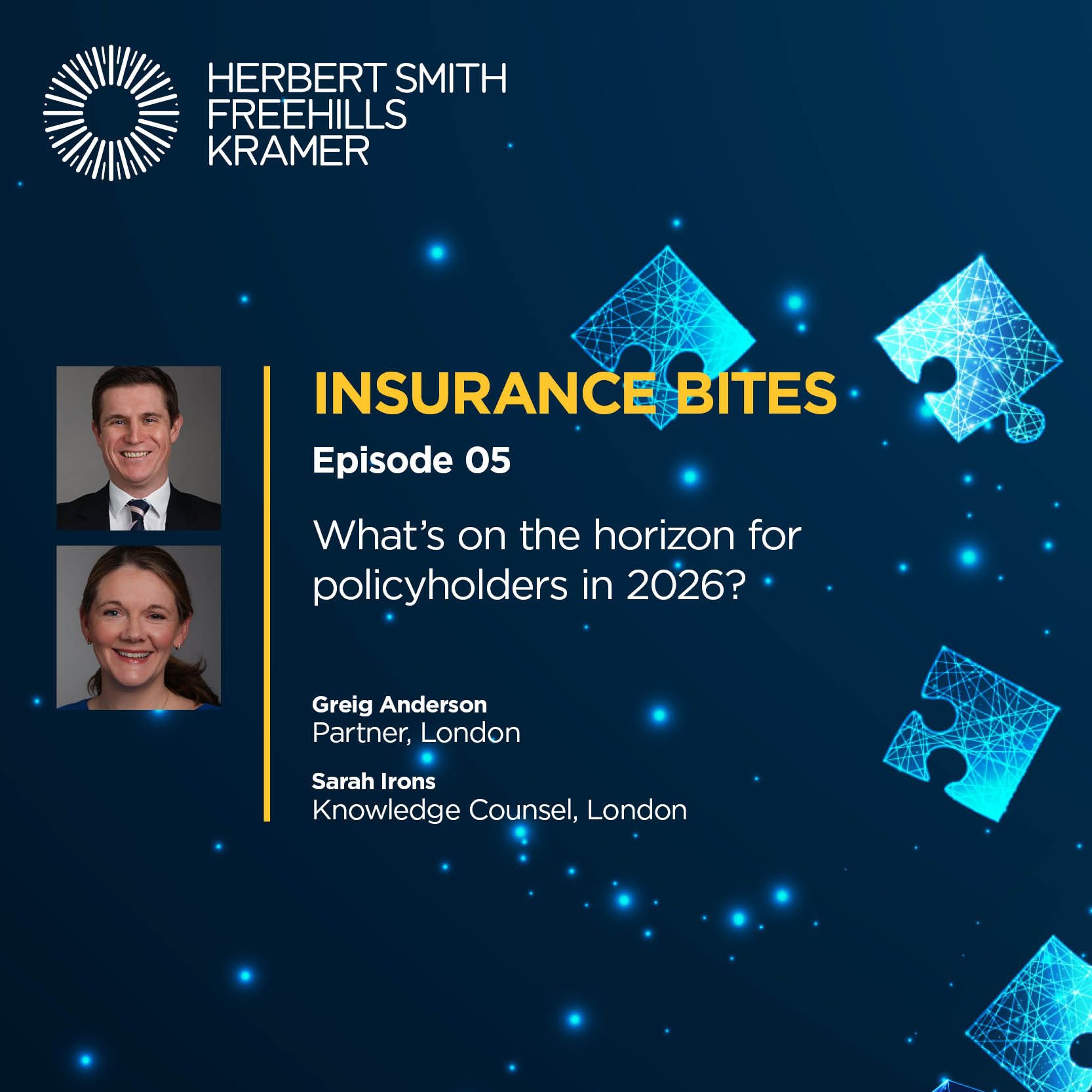







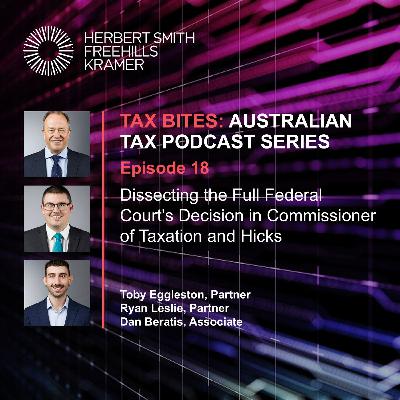

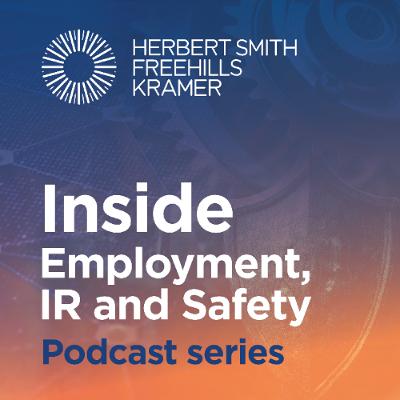
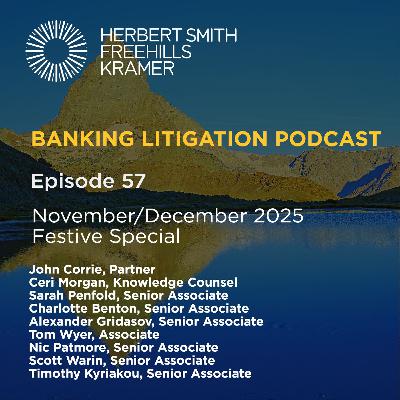

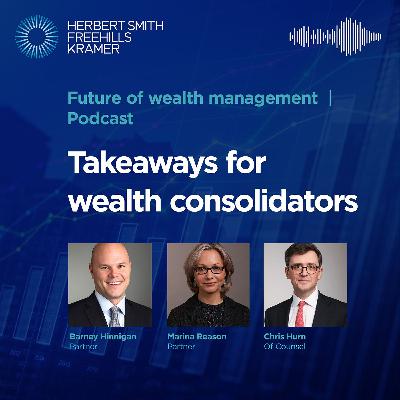
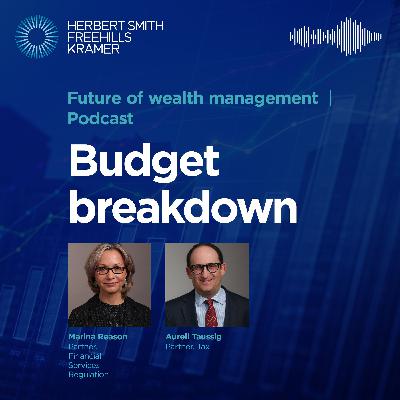
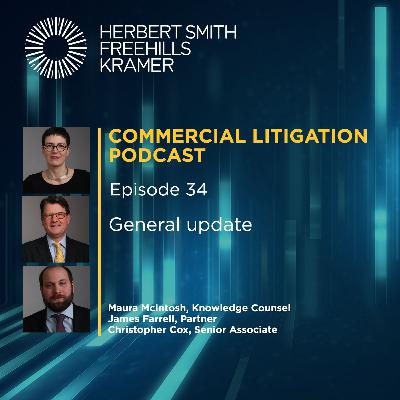
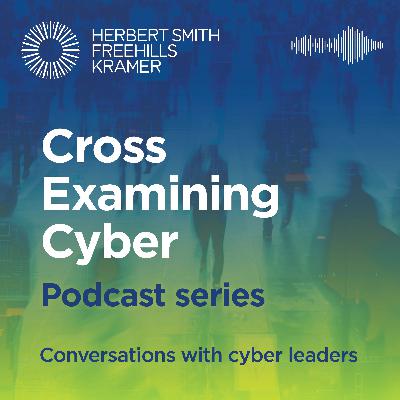

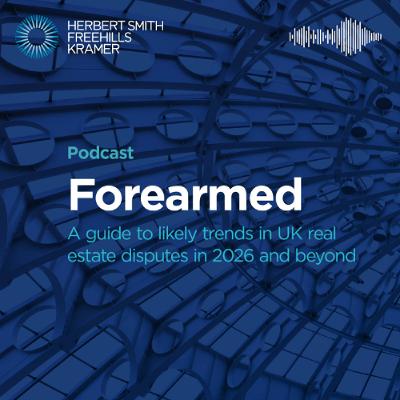



This is exciting engagement. Thanks for the insights. I have found a new home